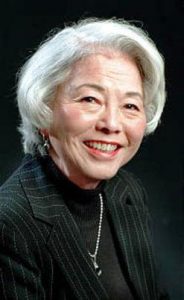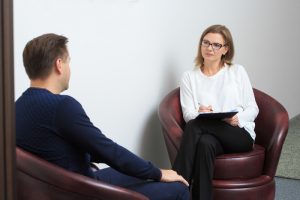This blog post contains mature themes dealing with abuse that may not be suitable for all readers. Reader discretion is advised.
Author’s Note: A lot has changed in the 39 years since the original article was written. I am humbled by the manner in which Church leadership has expanded to compassionately minister to those who have experienced sexual abuse and many other forms of PTSD caused by generational toxic family cultures. Today, my heart is full as I contemplate and witness the increasing willingness of women to make their voices heard and collapse the conspiracy of silence surrounding various forms of abuse they have endured for generations.
 In 1992 two events pierced my understanding as I began to see a shift in how women were regarded within the church. At that time, I didn’t realize it was never the “policy” of the Church, it was the lack of skill and experience regarding abuse held by the local leadership that was consistent in my experience.
In 1992 two events pierced my understanding as I began to see a shift in how women were regarded within the church. At that time, I didn’t realize it was never the “policy” of the Church, it was the lack of skill and experience regarding abuse held by the local leadership that was consistent in my experience.
I was journaling my experiences and the frustrations I felt. Because I was aware my views were subjective, I wanted to gain greater understanding and clarification about how priesthood leaders dealt with counseling victims of sexual abuse.
I made an appointment with my stake president, hoping he could help me understand more about how he held interviews with victims of sexual abuse. He was kind and patient with me as he explained as gently as he could that it was challenging for him because he could see that women with this issue are very emotional and it was uncomfortable listening to their stories. Of course, this was not news to me. I had firsthand experience being interviewed by leadership who were uncomfortable dealing with “emotional” women who had a background of abuse.
A few months later, the second event occurred.
In late fall 1992 Sister Chieko N. Okazaki was the keynote speaker at a regional women’s conference in Portland, Oregon where she was asked to speak on sexual abuse. I was present at that conference. In 1990, Sister Chieko Okazaki was called to be the first counselor in the Relief Society general presidency. In that position, she addressed the topic of sexual abuse in a general church setting — a topic that was not often spoken of.
The following is a transcript of devotional given at Brigham Young University on October 23, 2002 by Chieko Okazaki where she spoke again about sexual abuse:
“I am indeed honored to be asked, honored to participate in this assignment, and I am greatly saddened by the fact that the information in this talk still keenly relevant to so many members of the Church today. I have never experienced sexual abuse, nor has anyone in my family, but many friends, acquaintances, and troubled Relief Society sisters have honored me with their confidences. President Hinckley and President Monson have condemned this shocking sin in strong terms that brought it sharply to our awareness. In April conference this year, both President Hinckley and President Packer again repudiated this grievous sin. President Hinckley as recently as General Conference earlier this month denounced such sexual abuse again, warning that those who committed it could face action on their membership.
I personally believe that the growing awareness of and resistance to sexual abuse in the fulfillment of the scripture which says, “There is nothing covered that shall not be revealed, neither hid that shall not be known. Therefore, whatsoever ye have spoken [and I would add, have done] in darkness shall be heard in the light, and proclaimed upon the housetops.”
Each survivor who tells her or his story, each individual who reports abuse, each police officer who arrests a perpetrator, each judge and jury who enforce the law, and each person who teaches children to protect themselves and to report abuse are part of fulfilling this prediction of Jesus Christ about the last days. This evil must be exposed before it can be repented of, and it must be repented of.
“We Are Learning”

Sister Chieko N. Okazaki (1926 – 2011)
I am eternally grateful I was at that regional conference. As Sister Okazaki began her talk, I was aware that the Spirit had bathed me with his presence and I was completely captivated and moved by her words. After the conference, I went to the podium to thank her and shake her hand. As I reached for her hands, I could barely breathe. In tears I said, “I did not think I would live long enough to hear these words over this pulpit.”
As I left the pulpit, my stake president was walking toward me. He reached out to me, placing both hands on my shoulders. With a look of deep concern on his face, he said, “Sister, please be patient with us. We are learning.”
As I read Sister Okazaki’s published talk a few years later, I remembered at the regional conference she went into much greater detail — or perhaps much of what she said was amplified and supplemented by the Spirit so that I could begin my healing process.
I grew up in an environment where children were exploited, not protected. Adults were not held accountable for the consequences of failure to protect. In the rare cases where children disclosed the abuse and the perpetrator, they were not believed. They quickly learned to comply with the conspiracy of silence.
My personal experience is that the abuse victim is often perceived as inviting the abuse (or making it up) and has no skill to counter that perception. You learn to keep your mouth shut and simply dissociate from the pain. Dissociation from sexual or physical abuse typically include trauma that extends way beyond childhood, when it is often developed. It is a coping skill used to separate the person from the traumatic event(s) and memories of the traumatic event(s). Children find it particularly easy to “step out of themselves,” as their identity is still forming. Dissociation may be worsened during times of stress, even in adulthood, in those who have learned this coping skill. When a child is abused in a family culture (whether it’s the birth family or a foster home situation), the child doesn’t hate the adults — they learn to hate themselves.
As victims go through the aftermath of the trauma and develop the coping mechanisms, it is very common they are treated as the problem rather than the victim. No one feels comfortable experiencing, disclosing, and listening to shame-based abuse. It’s much easier discussing physical limitations— the ones with visible scars. How do you learn how to deal with the scars that don’t show?
During this developmental process, the skills to deal with victims of abuse were virtually unknown or unavailable. Many adults did not feel comfortable even talking about it, possibly because they had their own issues they didn’t know how to address, let alone help someone else address theirs.
So, what to do?
I got out of foster homes when I was 14. I attended church and seminary until I was 17. I was inactive until my oldest son was 8 years old. Since then, I have always been active in the church — even during the three years I was excommunicated for behaviors that I now understand were the direct consequences of the trauma of abuse. I experienced spiritual “bullying” from ill-informed members that felt uncomfortable associating with people who didn’t “fit the mold” of healthy, active, in-tact individuals with temple marriages, BYU diplomas, and a pantry of home-canned goods. As emotionally abandoned as I felt then, I can now see that the Spirit was protecting and preserving me. I have no doubt that I went through all that and survived it just so I could help someone else make it through.
I understand the Lord’s timing is perfect. As mortals, we often feel that change happens painstakingly slow. I have witnessed the gradual spreading of understanding by the manner in which we minister and succor those with “hands which hang down, and . . . feeble knees.”
In the April 2002 General Conference, President Hinkley and President Monson addressed the need for the sin of sexual abuse to be addressed. President Hinkley quoted the church handbook from 1998:
“The Church’s position is that abuse cannot be tolerated in any form. Those who abuse … are subject to Church discipline. They should not be given Church callings and may not have a temple recommend. Even if a person who abused a child sexually or physically receives Church discipline and is later restored to full fellowship or readmitted by baptism, leaders should not call the person to any position working with children or youth unless the First Presidency authorizes removal of the annotation of the person’s membership record. “In instances of abuse, the first responsibility of the Church is to help those who have been abused and to protect those who may be vulnerable to future abuse” (Gordon B. Hinckley, “Personal Worthiness to Exercise the Priesthood,” April 2002).
The Addiction Recovery Program

via the Aviary Recovery Center
Change gradually gained momentum:
- In 2006 the Church came out with its own guide book. Church Service Missionaries were the group leaders. It was then called the Addiction Recovery Program (ARP)
- In 2007 the ARP was introduced outside the US.
- In 2013, my husband and I were called to serve in the ARP focusing on pornography and sex addiction. My husband works with the addict and I work with the spouses.
- 2016 Spouses in ARP finally had their own handbook “Spouse and Family Support Guide.”
- Today there are many conference talks, Ensign magazine articles, and videos addressing the importance of seeking help and understanding of all kinds of abuse.
Currently my husband and I are in our sixth year in this calling as group leaders in the weekly ARP meetings. It feels like my life’s mission. I love the strength of the sisters I serve who are so determined to learn and grow. They realize this is a refiner’s fire that will prepare them for the level of resilience to be able to minister to others and to heal their families.
In 2015 October Conference, President Russell M. Nelson (then the President of the Quorum of the Twelve Apostles) referred to this prophesy in his conference talk “A Plea to My Sisters.”
In that talk, he quoted President Spencer W. Kimball who, in 1979, made a profound prophecy about the impact covenant-keeping women would have on the future of the Lord’s Church. He prophesied:
“Much of the major growth that is coming into the Church in the last days will come because many of the good women of the world will be drawn to the Church in large numbers. This will happen to the degree that the women of the Church reflect righteousness and articulateness in their lives and to the degree that the women of the Church are seen as distinct and different – in happy ways – from the women of the world” (Spencer W. Kimball, “The Role of Righteous Women,” October 1979).
Changes Regarding Women

To read more of Sonja’s articles, click here.
In the time that President Nelson has been the President of our Church, several revelations (including the changes in the temple endowment and policy changes) have been announced that impact women in positive ways. They are repeated reminders that women are to stand in their power and claim the blessings that are available to them.
The commission extended by President Nelson requires us to grow and develop all the gifts and talents with which we were endowed by our Heavenly Father. He stated:
“The Kingdom of God is not and cannot be complete without women who make sacred covenants, and then keep them, women who can speak with the power and authority of God . . . We, your brethren, need your strength, your conversion, your conviction, your ability to lead, your wisdom, and your voices.”
I have been pondering the seismic retrofitting that is scheduled for the Salt Lake City Temple in the next five years. To me, that is symbolic of what the Lord is asking all members of the Church to do. How do we “retrofit” our personal development? What do we need to study, ponder, journal about that will modify our thoughts, actions, interactions? What new skills will we seek to learn and implement?
What if, like the Salt Lake City Temple, you had 5 years to be retrofitted? What seismic jolts are ahead for each of us that we must be able to withstand and not fall? What are you willing to do differently? What are you reluctant to do differently? How long do you want to wait before you start making different choices and learning new skills? How can you prioritize your time and efforts to become all that you were created to be? Learning isn’t a way of reaching one’s full potential, it’s the way to develop it. We were literally born with the seeds of greatness already in us.
Last Fall, President Nelson alerted members to expect more of the unexpected.
“If you think the Church has been fully restored, you’re just seeing the beginning. There is much more to come. . . . Wait till next year. And then the next year. Eat your vitamin pills. Get your rest. It’s going to be exciting.”
Much has changed since the 1980s. I am a completely different person today and I pray I will continue to seek to understand the question, “What lack I yet?” Because of the progress in the policies and insight of counseling leadership at stake and ward levels, my children, grandchildren, and beyond are much more likely to disclose sensitive issues and seek healing and recovery, as well as inspired counsel. I work with women in my generation that are realizing the importance of learning emotional resilience, learning how to claim their power and stand in their truth.
We who have the fullness of the gospel are commissioned to be able to overcome our own fear of vulnerability and our own false sense of security… For if we can’t minister effectively to the emotional needs of our membership because of our own unmet emotional needs, how are we going to be prepared to meet the Savior?
Zion will not be made up of fragmented, scarred, frightened people who run around in a mask of well-being. This is reality. This is important. This is our mountain that must be climbed. The closing scenes of this final dispensation of time will not be for the faint of heart. We are the Battalion preparing the way for the return of our Savior. Perhaps, like Esther, we were born for such a time as this.
This is the song I wrote and recorded nearly 30 years after my first article to depict the lessons of life I have internalized and continue to apply in my life. To listen to the song I wrote and recorded in the 80s, scroll to the bottom of this article.
Sonja lives with her husband, Dale, on Anderson Island, Washington. She and her husband are Church Service Missionaries serving in the Addiction Recovery Program, focusing on pornography and sex addiction. She is also a certified life coach and teaches “Life Skills for Emotional Self-Mastery” in her stake twice a month. She does not teach you only to process something traumatic done to you in the past; rather, she helps you learn to feel it, heal it, and LET GO of whatever you still do to yourself and to others in order to cope with what was done to you in the past.






